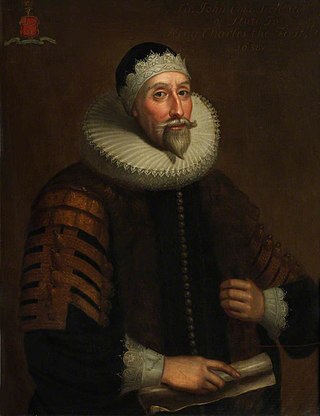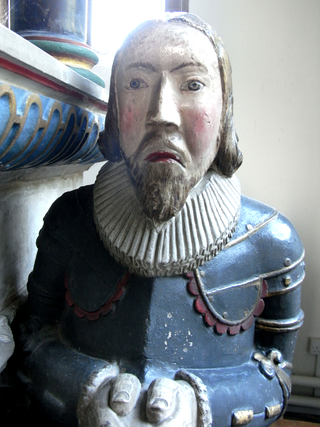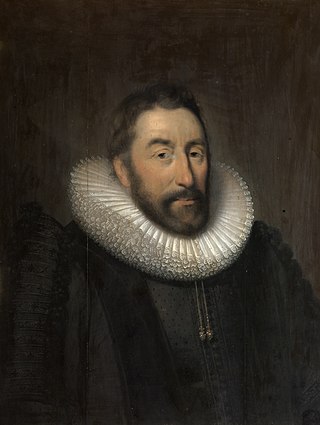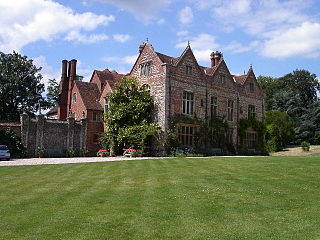Related Research Articles

Sir John Coke was an English civil servant and naval administrator, described by one commentator as "the Samuel Pepys of his day". He was MP for various constituencies in the House of Commons between 1621 and 1629, and served as Secretary of State under Charles I, playing a key part in government during the eleven years of Personal Rule from 1629 to 1640.

Sir Eubule Thelwall was a Welsh lawyer, academic and politician who sat in the House of Commons between 1624 and 1629. He was principal of Jesus College, Oxford, from 1621 to 1630.
Sir John Hobart, 2nd Baronet was an English politician and baronet.
Sir William Armine, 1st Baronet was an English politician who sat in the House of Commons at various times between 1621 and 1651. He supported the Parliamentary cause in the English Civil War.

Sir Heneage Finch was an English nobleman, lawyer, Member of Parliament, and politician who sat in the House of Commons at various times between 1607 and 1626. He was Speaker of the English House of Commons in 1626.

Sir Francis Popham (1573–1644) of Wellington, Somerset and Littlecote, Berkshire, was an English soldier and landowner who was elected a Member of Parliament nine times, namely for Somerset (1597), Wiltshire (1604), Marlborough (1614), Great Bedwin (1621), Chippenham 1624, 1625, 1626, 1628–29), and for Minehead (1640–1644).

Sir Edward Hungerford (1596–1648) of Corsham, Wiltshire and of Farleigh Castle in Wiltshire, Member of Parliament, was a Parliamentarian commander during the English Civil War. He occupied and plundered Salisbury in 1643, and took Wardour and Farleigh castles.
Sir Thomas Hatton, 1st Baronet was an English politician who sat in the House of Commons of England variously between 1621 and 1640.
Sir Richard Harrison was an English politician who sat in the House of Commons variously between 1621 and 1640. He supported the Royalist side in the English Civil War.
Sir Edward Leech was an English lawyer and politician who sat in the House of Commons between 1614 and 1625.

Sir Walter Pye of The Mynde, Herefordshire was an English barrister, courtier, administrator and politician who sat in the House of Commons from 1621 and 1629.

Sir Charles Morrison, 1st Baronet of Cashiobury in Watford, Hertfordshire, was an English politician who sat in the House of Commons at various times between 1621 and 1628.

Sir Robert Knollys (1588–1659) was an English politician who sat in the House of Commons between 1614 and 1629.
Sir Philip Cary was an English landowner and politician who sat in the House of Commons between 1614 and 1625.
Sir Robert Jackson was an English politician who sat in the House of Commons from 1621 to 1626.
Sir Charles Glemham (1576–1625) was an English courtier and politician who sat in the House of Commons from 1621 to 1625.
Sir Richard Spencer was an English nobleman, gentleman, knight, and politician who sat in the House of Commons from 1621 to 1629 and in 1661. He supported the Royalist cause in the English Civil War.
Sir Edward Spencer was an English landowner, lawyer, knight, nobleman, and politician who sat in the House of Commons at various times between 1621 and 1648.
Sir Francis Carew (1602–1649) was an English politician who sat in the House of Commons between 1624 and 1626.
Sir Arthur Lake (1598–1633) was an English politician who sat in the House of Commons from 1624 to 1626. His reputation was badly damaged by the notorious Lake-Cecil feud which lasted from 1617 to 1621, and both scandalised and fascinated the Jacobean Court.
References
- ↑ Robert E. Ruigh The Parliament of 1624: politics and foreign policy</]
- ↑ Knights of England
- ↑ Browne Willis Notitia parliamentaria, or, An history of the counties, cities, and boroughs in England and Wales: ... The whole extracted from mss. and printed evidences 1750 pp176-239
- 1 2 Anthony Wood Survey of the Antiquities of Oxford